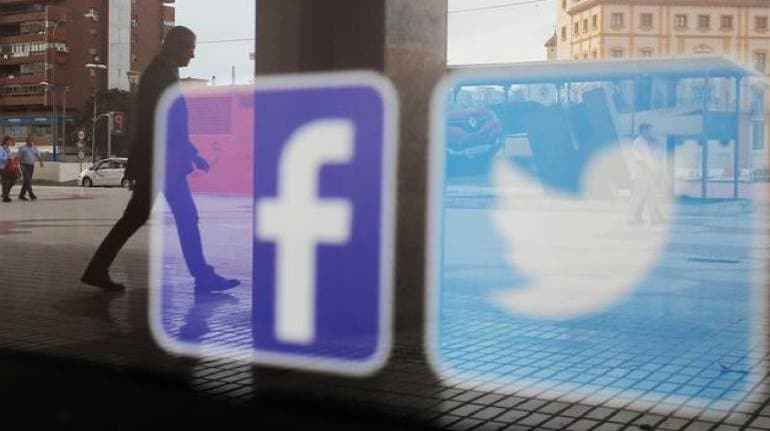



As the Russia-Ukraine conflict rages on, tech giants such as Meta, Google, and Twitter are facing increased pressure from both the sides to use their ubiquitous reach amid the ongoing crisis.
Meta/Facebook
On February 28, Facebook parent Meta announced that it removed two disinformation campaigns targeting Ukraine for violating its policies.
The first one, which was uncovered in the last 48 hours, comprised a network of about 40 accounts, Pages and Groups on Facebook and Instagram. It operated from Russia and Ukraine and targeted people in Ukraine across multiple social media platforms and through their own websites.
The second one targeted people in Ukraine, including Ukrainian military and public figures, in a bid to gain access to their social media accounts and post disinformation, making it seem like it is coming from legitimate account owners.
The company also advised people in Ukraine and Russia on steps they can take to strengthen the security of their online accounts.
Meanwhile, Russia said on February 25 that it will partially block access to Facebook after it claimed the social network restricted the accounts of four state-owned media outlets.
In response, Meta's president of global affairs Nick Clegg had said that they refused the government's request to stop the independent fact-checking and labelling of content posted by these media organisations which led to this restriction.
Meta also started prohibiting Russian state media from running ads or monetising on our platform anywhere in the world and temporarily removed the ability to view and search the “Friends” list for Facebook accounts in Ukraine.
Google & YouTube
On February 28, Russia's state communications regulator Roskomnadzor ordered Google to immediately restrict access to information posted as part of Google Ads which it says contain unreliable information about casualties among Russian military personnel and Ukrainian civilians.
It also warned online companies and advertising networks about "distributing contextual advertising containing unreliable significant information", which the regulator said could entail a fine of up to 5 million rubles ($50,000).
The regulator had previously written to Google on February 27, demanding the company to restore access to its state-owned media's YouTube channels in Ukraine, shortly after the video sharing service had announced plans to restrict access to several Russian state-controlled media channels including RT, as well as limit recommendations to these channels.
Google also said on February 26 it had paused the monetisation of Russian state-funded media across its platforms. It had also suspended Russia's RT News app from Google Play in Ukraine, in response to a legal request from the Ukrainian government.
Meanwhile, EU industry chief Thierry Breton has told Alphabet CEO Sundar Pichai and YouTube CEO Susan Wojcicki in video call that they should ban users pushing war propaganda amid the company's measures to stop disinformation.
Google has also temporarily disabled some features of Google Maps in Ukraine that provide live traffic information and real-time information on how busy different places are, following consultations with local authorities, according to Reuters.
Social media platform Twitter said February 26 it has temporarily paused advertisements in Ukraine and Russia to "ensure critical public safety information is elevated and ads don’t detract from it". It has also paused some Tweet recommendations from people they don’t follow on home timeline to reduce the spread of abusive content.
In India, The Ministry of External Affairs has opened a dedicated Twitter handle @opganga to assist in the evacuation of Indian nationals from Ukraine. The mission to evacuate the stranded Indians from Ukraine has been named as "Operation Ganga".
Other companies
Elon Musk said on February 26 that SpaceX's Starlink satellite broadband service had been activated in Ukraine with "more terminals enroute", after the country's Vice Prime Minister Mykhailo Fedorov pleaded with him to provide satellite-based communications to help resist Russia’s invasion.
Fedorov has sent similar requests to Apple and Google, asking them to block access to their respective mobile app stores App Store and Google Play and stop supplying its products and services to Russian users.
He has also requested Netflix to block the Russian Federation’s access to its service and shut off Russian content as well as global card networks Visa and Mastercard to block their services on all cards issued within the Russian Federation.
That said, customers at several banks in Russia are unable to use their bank cards with Google Pay and Apple Pay due to the recent sanctions imposed on the country, Russia's central bank said on February 25.
On February 27, Telegram founder Pavel Durov initially said that they may consider partially or fully restricting some channels on its app if the conflict escalates but later reversed course citing several user requests not to do so.
Discover the latest Business News, Sensex, and Nifty updates. Obtain Personal Finance insights, tax queries, and expert opinions on Moneycontrol or download the Moneycontrol App to stay updated!
Find the best of Al News in one place, specially curated for you every weekend.
Stay on top of the latest tech trends and biggest startup news.